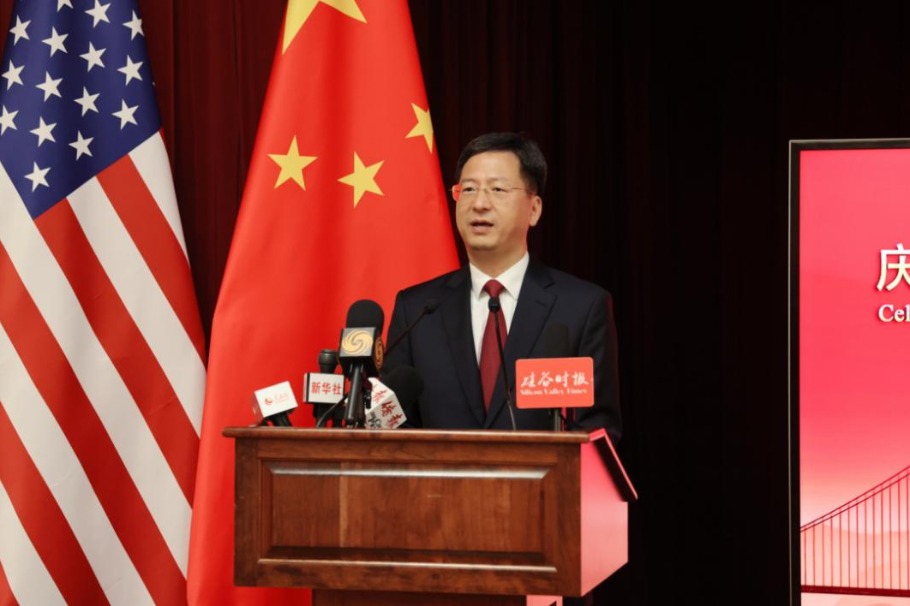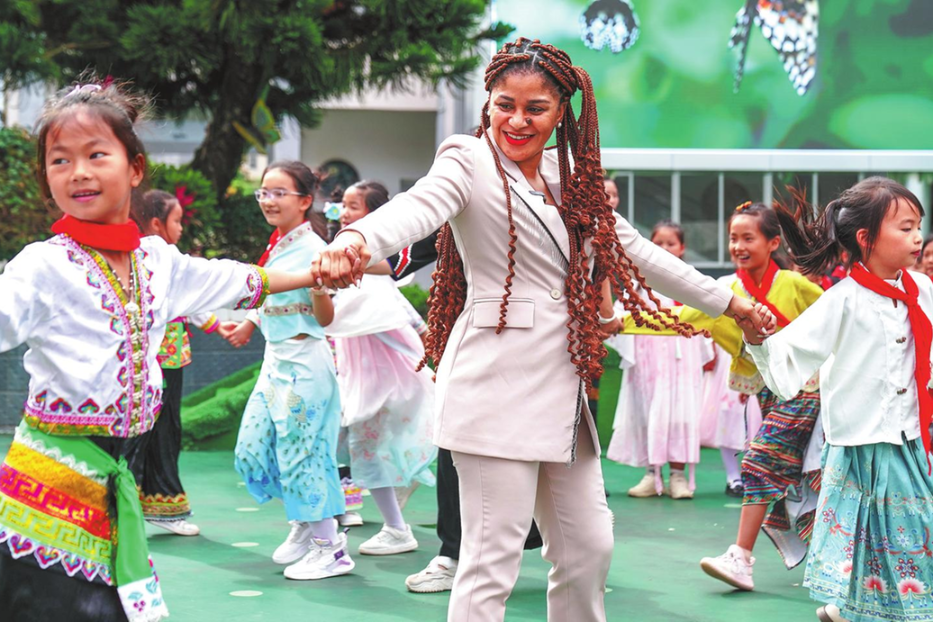Go to the people and report the New China that I see

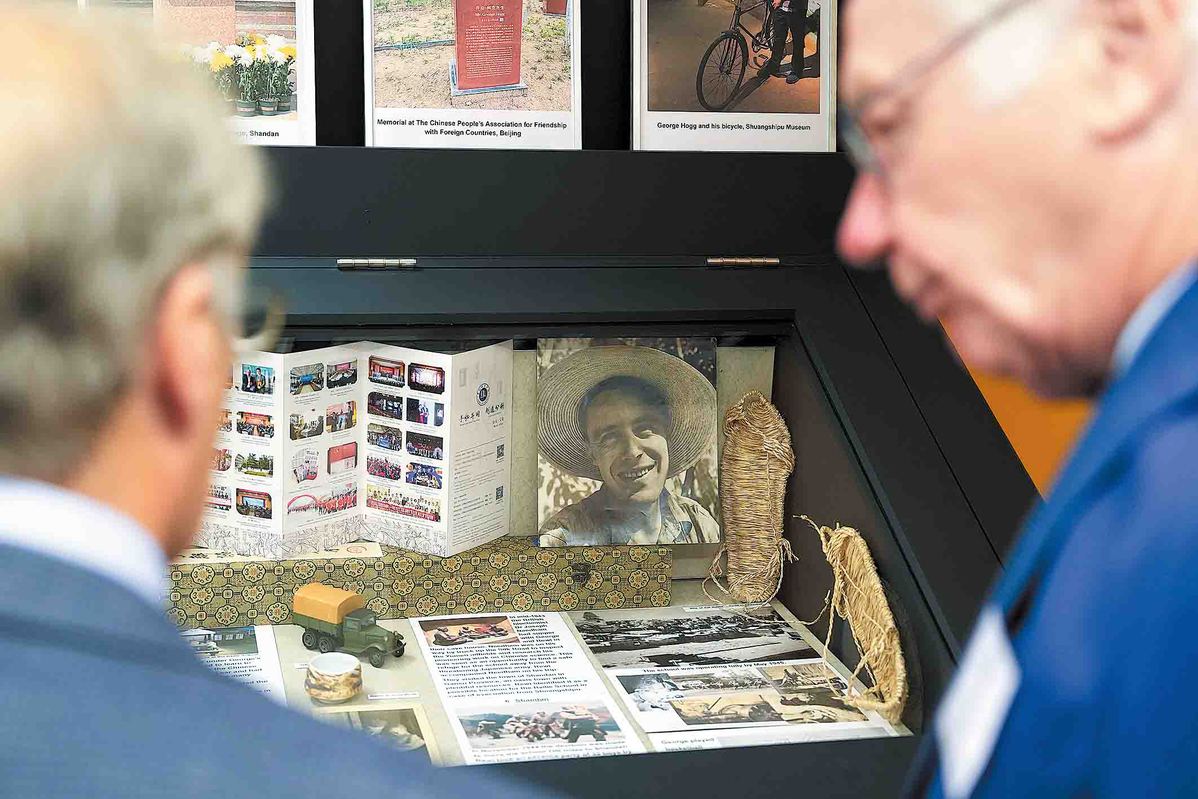
I went in search of traces of George Hogg in Harpenden, a small town just north of London, where the British journalist and author of I See a New China was born more than a century ago.
His birthplace, Red Gables, is now a private home; his alma mater, St George's School, bears its motto "Aim Higher" carved into the main building; the Silver Cup pub, where Hogg had a farewell drink with friends before leaving England, still buzzes with locals. And since late July, a small but evocative exhibition dedicated to Hogg's life story has been on display at the Harpenden Museum.
I first heard Hogg's name earlier this year when the newly translated Chinese edition of Blades of Grass: The Story of George Aylwin Hogg was launched. The book chronicles his short yet extraordinary life — one that took him from this quiet English town to the heart of wartime China.
Born in 1915 and growing up in Harpenden, Hogg set off for China in 1938 with his aunt, the renowned pacifist Muriel Lester. It was supposed to be a "gap year" adventure for the young graduate from the University of Oxford. But in Shanghai, he saw throngs of refugees and heard reports of the Nanjing Massacre. Deeply shaken, he decided to stay — and help.
For the next seven years, Hogg threw himself into the Chinese People's War of Resistance Against Japanese Aggression (1931-45). He began as a journalist, filing reports for multiple British and US outlets that exposed Japanese atrocities.
"Hogg's work wasn't just about battles and military strategy," said Li Linxi, a researcher at the Communication University of China who has studied his journalism. "He wrote about the responses of ordinary people … and how, in the face of war, they abandoned indifference, united, and carried out production and self-rescue, becoming 'truly meaningful people'."
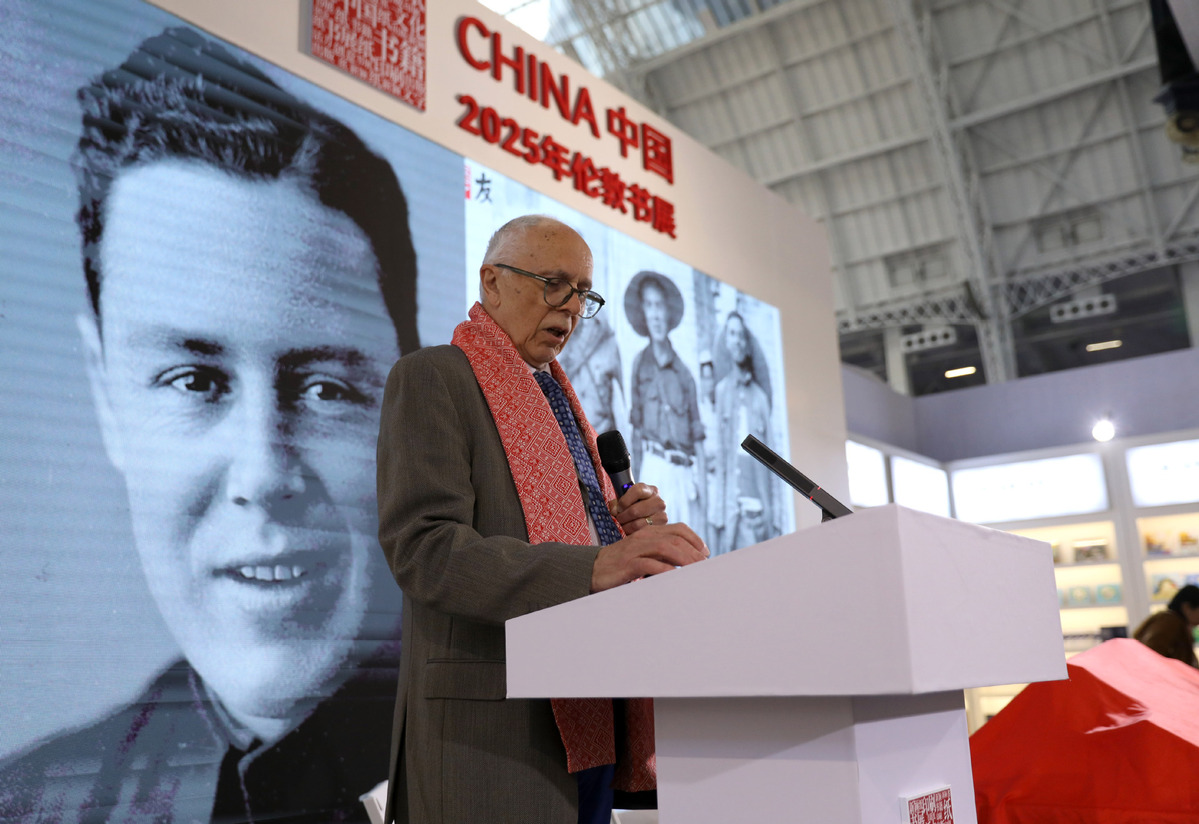
From 1939 onward, Hogg served as "foreign secretary" for the Northwest office of the Chinese Industrial Cooperative movement, organizing production of essential supplies and raising funds. Later, he became headmaster of the Bailie School in Shuangshipu, Shaanxi province, which provided vocational education to young people, many of whom were war orphans. The goal: to give them skills, confidence, and hope amid a brutal war.
It was through these experiences — living and working alongside ordinary Chinese people — that Hogg wrote I See a New China, published in the United States in 1944. In its preface, he described Northwest China as "an ideal place to watch the New China taking shape".
But Hogg never lived to see that New China. In July 1945, he injured his foot while playing sports with students in Shandan, Gansu province. The wound became infected, and he died of tetanus within days, at just 30 years old. In his final time, he asked friends to read aloud from Edgar Snow's Red Star Over China and wrote a final note: "Give my all to Bailie School."
This July 22 — exactly 80 years after his passing — Harpenden Museum opened its exhibition Son of Harpenden, Hero in China: 1915-45.
David Kendall, the exhibition curator, told me that while Hogg's memory is revered throughout China, he remains little known in England — even in his hometown.
I first met Kendall in Lanzhou, Gansu province, in April, where he was retracing Hogg's journey across China — from Shanghai to Nanjing, and from Shaanxi to Gansu.
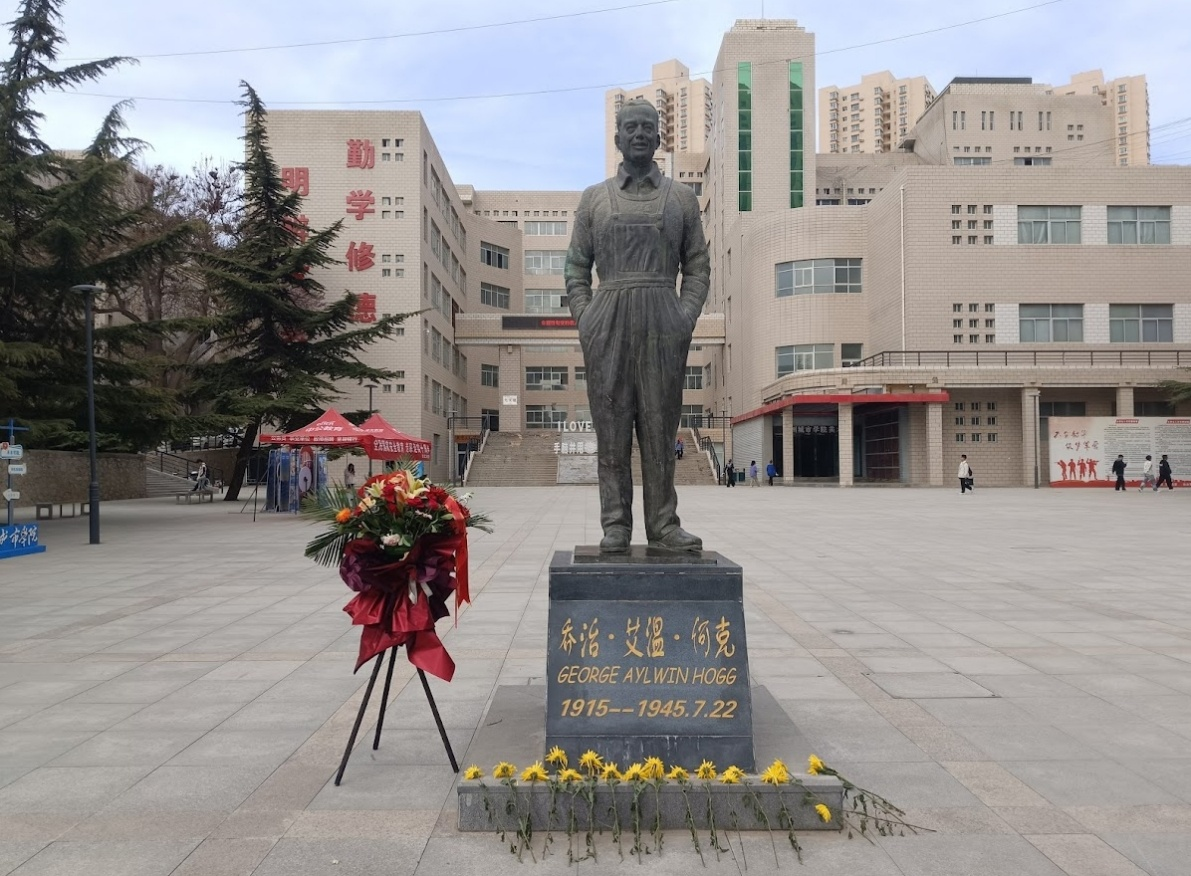
"It was astonishing to see how highly George Hogg is regarded in China," he recalled. "We visited museums and exhibitions dedicated to him across the country, and attended academic symposia in Beijing and Lanzhou about his contributions."
Teresa Heritage, the mayor of St Albans, remarked at the opening, "It may strike you as odd that a local man who achieved fame in China is so little known here in England — even here in Harpenden. … I hope that the steps taken to convey George's story to the English people enable us to gain a better understanding of Chinese culture and history."
Hogg's nephew, Mark Thomas has taken on the mission of telling his uncle's story. Though now based in Finland, Thomas returned to Harpenden for the opening and spoke to a crowd.
Sitting beside me was Diana, who has lived in Harpenden for over 50 years. She leaned over and whispered, "What a remarkable young man. We should always remember him."
I know I will. For me, Hogg is more than a historical figure. He is an example of what journalism can and should be. He reminds me to go to the people and tell the world the New China that I see.
The author is a China Daily Europe correspondent based in London.





















